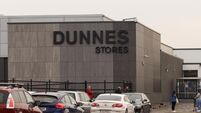Irish inflation cools to 7% but core eurozone price pressures may spook ECB hawks

The headline annual rate of Irish inflation cooled to 7% in March, but annual food price inflation is running at 13.5%
The pace of Irish inflation cooled somewhat to 7% in March, but underlying price pressures here and elsewhere in the eurozone could yet convince the hawks at the European Central Bank to keep driving interest rates higher, analysts say.
Central Statistics Office figures show the annual inflation rate in Ireland eased to 7% from just over 8% in February, after the prices of energy products fell by almost 1% in the month, probably reflecting the sharp declines in wholesale market prices for gas and crude oil since the start of the year.














